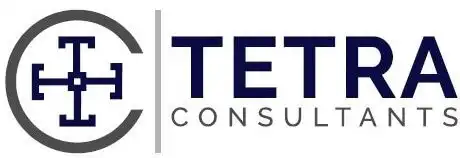Ultimate Guide on Registering a Business in Ireland

Contact Us
As a member of the European Union, businesses in Ireland are able to benefit from a number of trade, financial, and economic advantages through the EU membership. Furthermore, Ireland has a low corporate tax rate and a highly educated labor force. Hence, this makes Ireland an attractive place to start a business. In this article, our team at Tetra Consultants has highlighted an ultimate guide on registering a business in Ireland before you register company in Ireland.

Types of companies in Ireland:
Under the Companies Act 2014, there are several types of companies in Ireland
Private Company Limited by Shares (LTD Company)
LTD Company is a limited liability company (LLC) where it is a separate entity with limited liability limited to its contributed share capital. There is a maximum limit of 149 members. There is a requirement of at least one director and one secretary which are of a different person. It can pass majority written resolutions for both special and ordinary. In addition, it is eligible for audit exemption. LTD is not required to hold an Annual General Meeting (AGM).
Designated Activity Company (DAC)
DAC is a limited liability company (LLC) where it is a separate entity with limited liability limited.
In DAC limited by shares, the liability is only limited to its contributed share. Whereas in DAS limited by guarantee and having a share capital is where the liability is limited to its contributed share and the amount undertaken to contribute to the assets of the company
There is a maximum limit of 149 members. There is a requirement of at least two directors. It can pass majority written resolutions but is required to hold an Annual General Meeting (AGM) with at least 2 members. Furthermore, it is eligible for both audit and dormant company audit exemption.
The name of the company must end in “Designated Activity Company” or “Cuideachta Ghníomhaíochta Ainmnithe” unless exempted such as not-for-profit companies
Companies Limited By Guarantee (CLG)
Its liability is limited to the amount undertaken to contribute to the assets of the company. There is a requirement of at least two directors. Furthermore, it is eligible for both audit and dormant company audit exemption.
The name of the company must end in “Company Limited by Guarantee” or “Cuideachta faoi Theorainn Ráthaíochta” unless exempted such as not-for-profit companies
Public Limited Companies (PLC)
It is a separate entity with limited liability limited to its contributed share capital. There is a requirement of at least two directors. However, it is not eligible for both audit and dormant company audit exemption. The name of the company must end in “Public Limited Company” or “Cuideachta Phoiblí Theoranta”.
Unlimited Companies
An unlimited company has unlimited liability. There is a requirement of at least 2 directors. . However, it is not eligible for both audit and dormant company audit exemption. The name of the company must end in “Unlimited Company” or “Cuideachta Neamhtheoranta”.
Residency requirements in Ireland:
There is a requirement where minimally one director is a resident in a member state of the European Economic Area (EEA).
However, if unable to do so, there are two options to proceed on. Firstly, it would be an application to the CRO to be certified that the company has a real and continuous economic link with Ireland. Secondly, the company could provide a bond to the value of €25,395.
In addition, in order to establish the Irish tax residency of the company, a majority of the directors will have to be tax residents or Ireland.
Annual return filing requirement in Ireland:
It is required to file an annual return and financial statements with the CRO annually. It includes a summary document of the directors, secretary, shareholders and share capital at a point in time. The first annual return filing should be done within 6 months of company incorporation. After which, filing of annual returns and financial statements have to be done annually.
Tax obligation in Ireland:
With the second-lowest corporate tax rate in the European Union, Ireland has attracted many foreign investors to start a company in Ireland. Its low corporate tax is at the rate of 12.5%. In addition, there are no withholding taxes on dividends and no capital gains tax on the disposal of shareholdings in subsidiaries. Value Added Tax (VAT) is also applicable on most goods and services at a rate of 21%. However, it is most of the time already included in the price itself.
The Business Expansion Scheme (BES) allows for tax savings for companies in specific industries. These industries are the manufacturing, service, tourism, research, and constructing industries. The business-friendly environment in Ireland where the government supports foreign investment in specific industries further attracts foreign investors setting up a business in Ireland.
Business registration in Ireland:
If you have decided to set up company in Ireland, you may proceed with the process with registering a business in Ireland:
Step 1: Planning of your business idea
Step 2: Choosing a suitable corporate entity
- After accessing your business goals and activities, you can choose the most suitable corporate entity for your business.
- The different types of entities are mentioned above.
Step 3: Reserving of the company name
- After you have decided on a suitable corporate entity, you may proceed to the next step which is to register business name Ireland. In order to register a company name, you will have to submit Form RBN1B together with the registration fee to the CRO within one month of adopting the company name.
Step 4: Registration of the company
- Before proceeding with registering a business in Ireland, you will have to prepare the necessary incorporation documents such as Form A1, the constitution and the Memorandum and Articles of Association (MOA/AOA) if required.
Step 5: Application of business license
- Obtain the necessary business license as required by the business.
Step 6: Corporate bank account opening
- All registered companies in Ireland are required to have a corporate bank account.
Step 7: Staying compliant
- This includes the annual filings and tax obligations.
Conclusion:
The information of what you need to know before registering a business in Ireland may seem intimidating. With Tetra Consultants by your side, the registration process of your business in Ireland will be smooth and hassle-free. Our comprehensive service package includes planning and strategizing with our clients to select a suitable business entity, completing the registration process, obtaining required licenses, opening a corporate bank account, and ensuring your compliance with the government regulations.
Contact us to find out more about registering a business in Ireland and our dedicated and experienced team will revert within the next 24 hours.
Tetra Consultants
Tetra Consultants is the consulting firm that works as your advisor and trusted partner in your business expansion. We tell our clients what they need to know, instead of what they want to hear. Most importantly, we are known for being a one-stop solution for our valued clients. Contact us now at enquiry@tetraconsultants.com for a non-obligatory free consultation. Our team of experts will be in touch with you within the next 24 hours.





